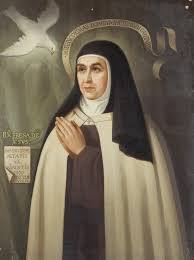What do Christian mystics offer to the contemporary world?
The mystics show that we come to God through our own experience, and that experience involves the whole person. There is a great variety among the Christian mystics (even more varied if we include the mystics of all religions) – some of them are more intellectual, some more emotional, and some come to God more through physical experience. They remind us that all these are all ways of encountering God.
William James, a great psychologist at the beginning of the 20th century, wrote a book called ‘The Varieties of Religious Experience‘ and subtitled it: ‘A study in human nature.’
All the aspects of who we are – intellectual, emotional, physical – are ways into the mystical, and are enriched by it. Christian mysticism is varied; it’s personal and unique – everyone has their own way in and their own way of experiencing.

Christian mysticism is experiential; it’s life-changing – the fruit of mysticism is the way that we live.
Teresa of Avila: A mystical life

Professor Bernard McGinn, who will be facilitating the course, in his Introduction, will talk about Teresa of Avila. Teresa of Avila had these extraordinary experiences that were very personal, emotional but also physical.
She also reflected deeply on the process, she was a great writer. At the end of her writing, however, she said that the importance of mysticism is that it led to good works. Today we realise that mysticism is not just personal but communal, that it leads to a deeper sense of social justice, is transformative – both in our own lives and in the world. In the end the importance of mysticism is that it helps us grow in love.
Curious to find out more ?
Dr Stefan Gillow Reynolds (author with a PhD in Christian Spirituality) will be in conversation with Professor Bernard McGinn in one of the sessions of the Into the Mystics series starting January 2024.





